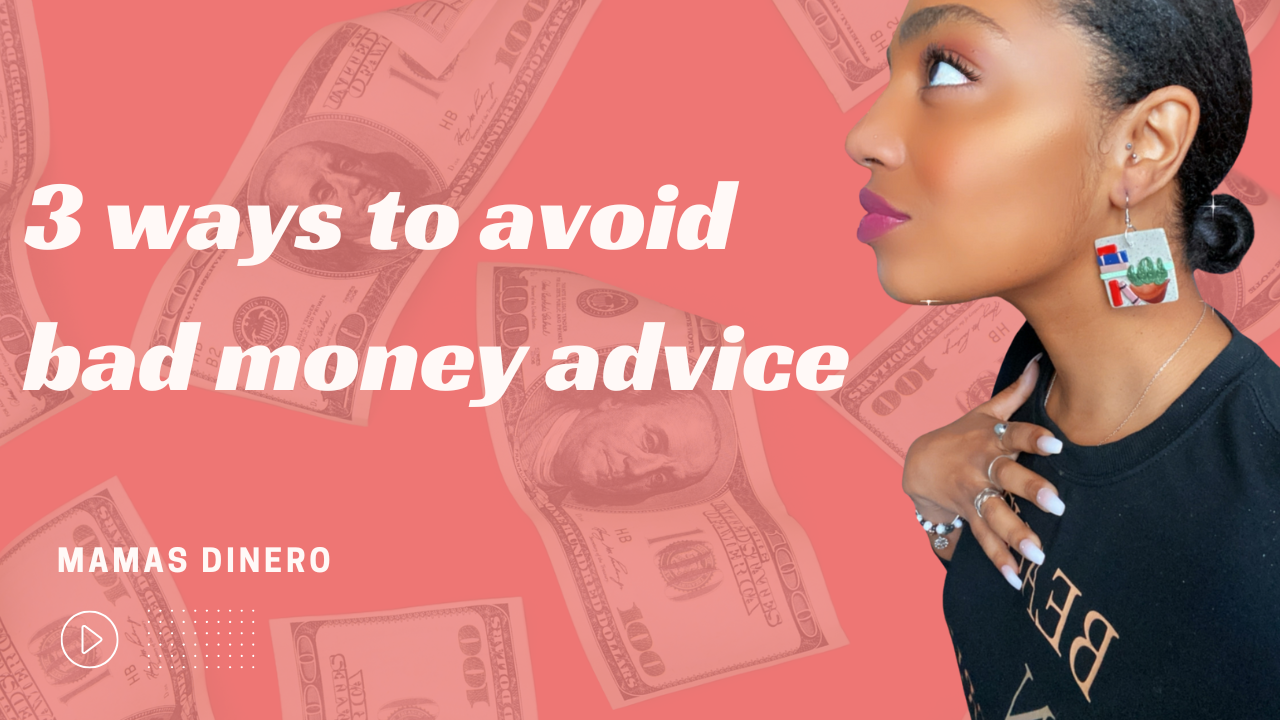
WORST money advice I’ve heard: “Don’t pay your credit cards and just let them default and then when collectors call you can negotiate what you want to pay”
DO NOT, I repeat DO NOT take that advice was what came out of my mouth! I often come across information online or through conversations and wonder where is this coming from, is their truth.
Let me break it down how I weed out the BAD money advice real quick


3 ways to avoid bad money advice
-
The Source Practices the Preach
Certified financial planners, financial coaches, or nonprofit credit counseling agencies can all supply you with advice that’s tailored to your unique circumstances. However, there are some really amazing EXPERIENCED financial curators with real-life experiences who share the data, and math and lay it all out for you to understand. Basically, people who don’t earn a commission when you agree to follow their advice by using recommended solutions. That way, you know you’re getting unbiased guidance.
Even Blogs like MINE! Always consider the sources and analyze where in the financial sector this information is coming from.
As an added bonus, you’ll also get a solid explanation of how different financial products work, which is the knowledge that can serve you for years.
2. Not all money advice is your money advice
I say this over and OVER! I say this, especially during my Big Budgets Course where I teach how to structure a successful personal budget through multiple solutions like the envelope system or the 50/30/20 rule. Money advice is like clothing. It’s designed to fit a person, but that person might not be you. Certain money best practices don’t work for everyone’s situation.
Bad money advice can also oversimplify a complex decision. With more people working remotely, for instance, a friend may suggest you simply move to a lower-cost city to save money. Billy who lives in a high-cost area in New Jersey and has no plans to leave, says that this advice disregards the non-monetary benefits of staying put — such as being close to an established community of family and friends.
So make sure you evaluate your cost of living your lifestyle and how realistic the advice that pertains to you.
3. Too good to be true
MAKE a million dollars overnight, click here! Seriously these click baits can attract anyone and everyone. The internet and social media are rife with money-related clickbait that promises near-instant success. Influencers sell access to expensive courses that claim they’ll make you a millionaire.
High school acquaintances send you direct messages out of the blue, asking if you want to “be your own boss” by joining a multilevel marketing program. Many of these get-rich-quick schemes are a waste of time and money!
Trustworthy money guidance isn’t going to make empty vows about guaranteed wealth. Look for advice that fits you, but gives you realistic expectations and a few alternative courses of action.
P.S. Need help with your budget ideas? Check out our Big Budgets Course
Financial Disclaimer:
This website (the “Blog”) is created and authored by Alicia Sanchez (the “Content Creators”) and is published and provided for informational and entertainment purposes only. The information in the Blog constitutes the Content Creator’s own opinions (and any guest bloggers posting from time to time). The opinions expressed in the Blog are for general informational purposes only and are not intended to provide specific advice or recommendations for any individual or on any specific security or investment product. It is only intended to provide education about the financial industry. The views reflected in the commentary are subject to change at any time without notice. Read More
avoid bad money advice at work - bad financial advice - bad investing advice - common bad financial advice - what are some bad financial advice - bad advice from financial advisor - financial advice when in debt - where can you get good financial advice - how to find good financial advice - good financial advice for young adults
